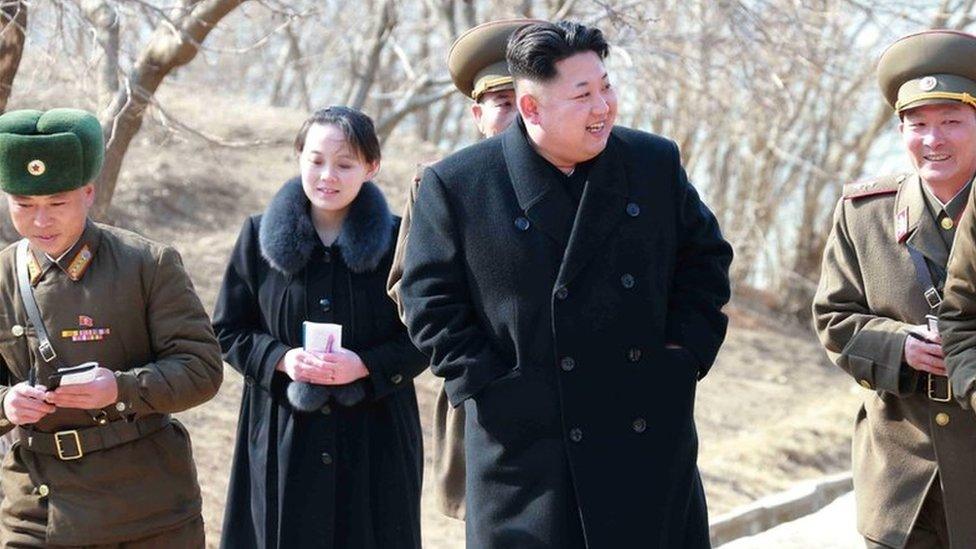Winter Olympics: A brief political backgrounder
- Published
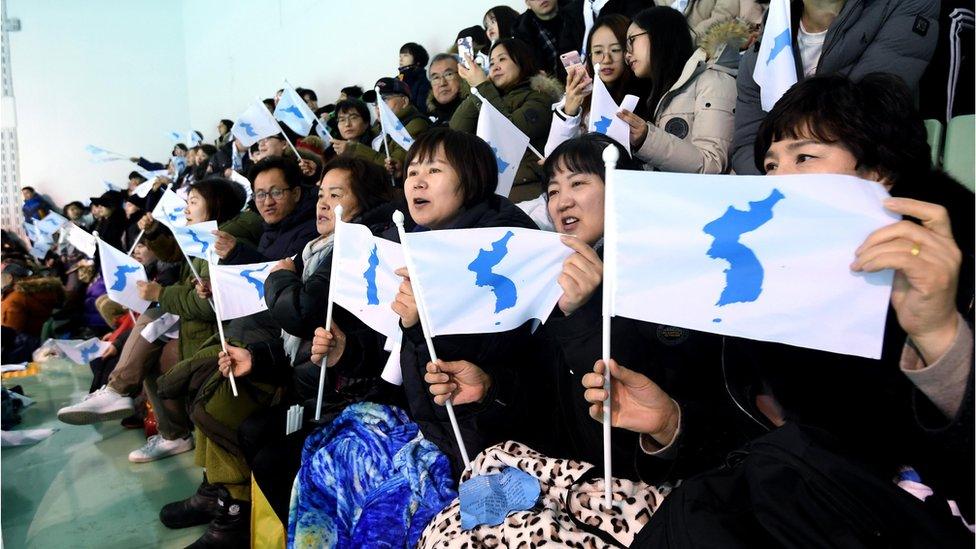
People wave a unified Korea flag during a joint Korean women's hockey match
It is not unusual for the Olympic Games to take place with a heated political backdrop.
But these Winter Olympics, in the mountainous Pyeongchang region of South Korea, are happening in particularly intriguing circumstances.
We've condensed the story down to 100 words and 500 words - you can read each individually or one after the other.

The Games are happening only 80km (50 miles) from the North Korean border and come at a time of heightened concerns over the North's military capabilities.
After several missile and nuclear tests, there are fears North Korea, an autocratic, unpredictable state, may now have a nuclear weapon they're able to fit on a missile - one that could reach the US.
Leader Kim Jong-un has also been engaged in a war of words with Donald Trump - a key ally to South Korea.
But there's been a warming of ties between North and South before the Games. How long will that last?

The Winter Olympic Games and Paralympic Games are taking place in a country still technically at war with its neighbour, which is only 80km (50 miles) from the Games venue.
In reality though, they're not in a state of war - neither side was able to claim victory after the 1950-53 Korean War, so they agreed a ceasefire.
Relations between the two remain fraught.
But South Korea's president Moon Jae-in has said the Games are a "precious opportunity" to seek peace on the Korean peninsula, and has called these Games the "Peace Olympics".
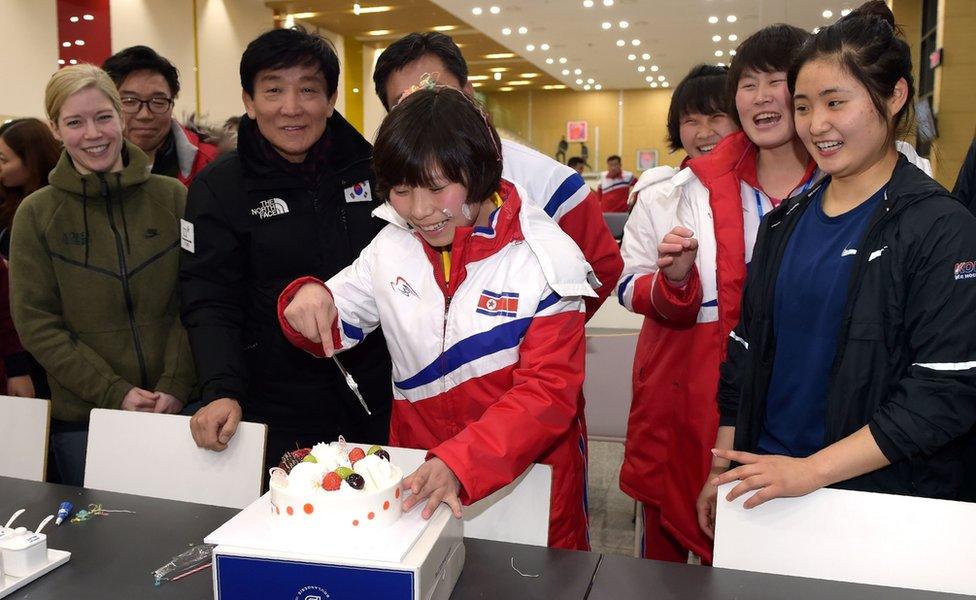
North Korean ice hockey player Choe Un-gyong cuts her birthday cake as North and South Korean teammates look on
Both countries will walk together under the same unified flag, and are fielding a joint women's hockey team.
What's the background?
The Korean peninsula has been divided since the end of World War Two.
The North is an autocratic state of 25m people, largely isolated from the world, headed by Kim Jong-un.
The South is a thriving democratic state of about 51m people that is a key US ally.
Officially, both countries support unification. But their visions of what a unified Korea would look like are very different.
What's happened recently?
North Korea, insisting it has the right to defend itself, has pushed ahead in recent years with developing a nuclear programme and producing ever more advanced missiles.
In 2017, it conducted its sixth nuclear test and also tested intercontinental ballistic missiles capable of reaching the US. North Korea also said it could now place a miniaturised nuclear weapon on top of a missile.
The US has installed a missile defence system in South Korea - its presence there has infuriated the North.
Last year also saw a war of words between the North and US President Donald Trump, who threatened to "totally destroy" North Korea in a UN speech.
What changed?
In a surprise move, Kim Jong-un extended a rare olive branch to the South in his new year's speech, saying he was willing to send a team to the Games.
This was noteworthy as there hasn't been much co-operation between the countries under the past two governments in South Korea. The North also boycotted the 1988 Olympic Games in Seoul, so its willingness to travel to Pyeongchang is significant.
After Mr Kim's speech, the North agreed to send a 500-strong delegation to the Games - his sister, Kim Yo-jong, was among the officials to visit.
Are things looking rosier?
The warmer ties have been welcomed, but there's been plenty of scepticism too.
Hong Joon-pyo, leader of South Korea's main opposition party, said the government "is being dragged around by Kim Jong-un's false peace offensive and political show".
Japan's foreign minister said North Korea was using the Games as a chance to improve its image, while continuing its missile and nuclear programmes regardless. "It's not the time to ease pressure towards North Korea," Taro Kono said.
Meanwhile, the signs that North Korea is happy to continue provoking its critics are still there - it moved its traditional military display forward two months, to the eve of the Games.

Read more explainers like this one
- Published7 February 2018
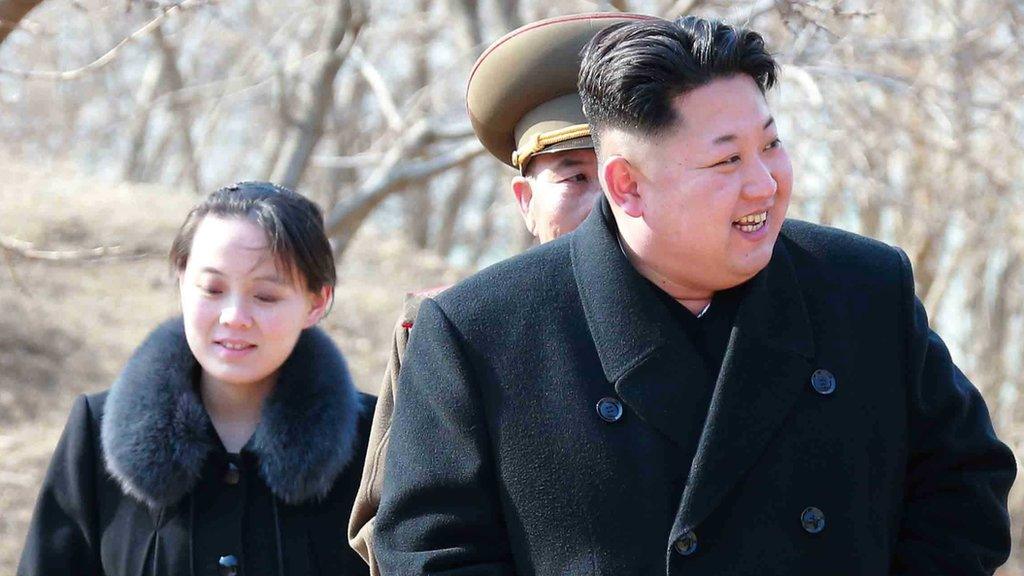
- Published8 February 2018
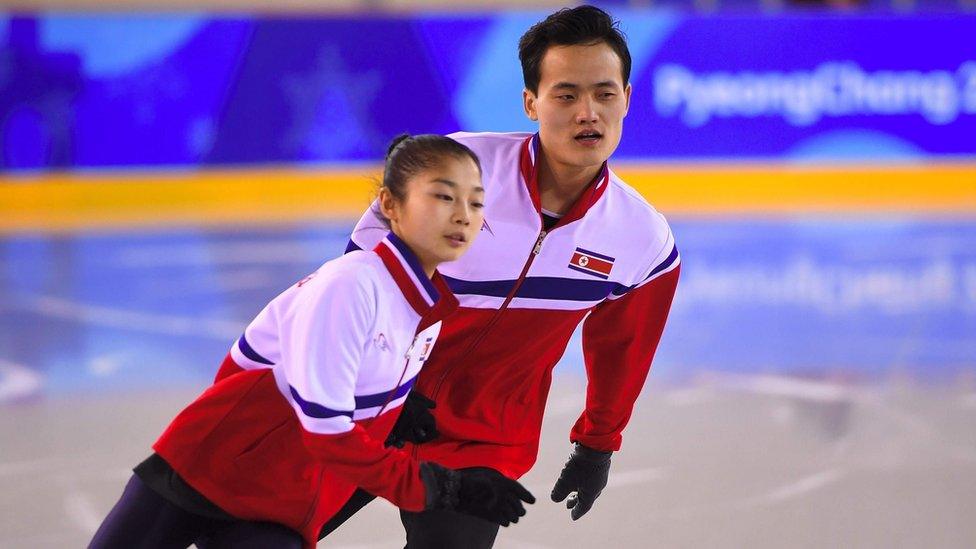
- Published9 January 2018
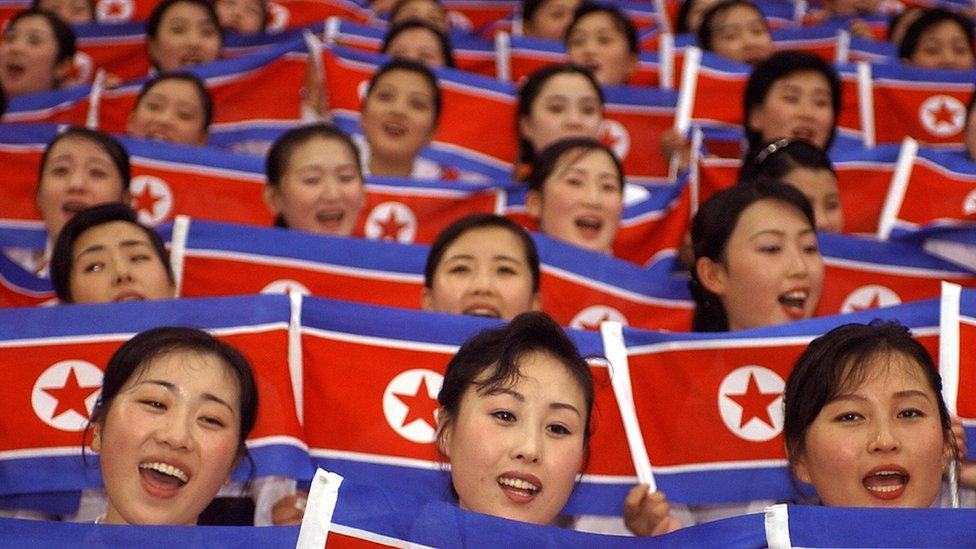
- Published16 June 2020
